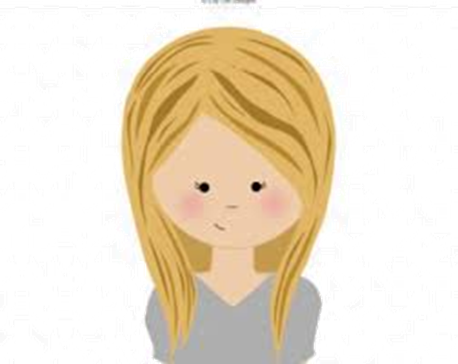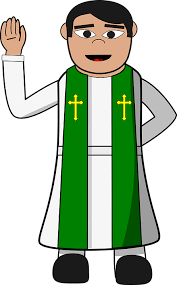Class X (First Flight) Poem -11- For Anne Gregory by William Butler Yeats
For Anne Gregory
by William Butler Yeats

About the Poet
William Butler Yeats (1865-1939) was an Irish nationalist. He was educated in London and Dublin, and was interested in folklore and mythology. He won the Nobel Prize for Literature in 1923.
Central Idea of the Poem
The poem ‘For Anne Gregory’ by William Butler Yeats is about the perception of
love by different people. The poem is in the form of a dialogue between two
people, Anne Gregory and another speaker, whose identity has not been made
clear by the poet. Therefore it could be anyone; Anne’s lover or a friend or
the poet himself.
The poem shows the true nature of humans as they are always carried away by the
outer beauty which is insignificant, and never pay attention to the true nature
of the person. He says that it is almost impossible to find a person in your life who loves you truly. By saying truly, he means the one who loves you for your qualities and not your looks. He says that only God loves us for what we are from inside.
Summary of the poem
The poem is basically a conversation between the poet, Yeats and a young girl named Anne Gregory. The poet tells her that if she finds a young boy who becomes sad because of her rejection, it doesn’t mean that he was a true lover. He could have been in love with her because of her beautiful yellow hair. This means that the boy might be in love with her because of her attractive looks. He says that a true lover will be the one who will love her for her inner qualities and not her looks. To this, Anne says that she will change her looks by dying her hair into some other colour. She will become less attractive and then, maybe, she will find a true love for herself. So, at last, he explains to her that the previous night, he had heard some religious man saying that only God loves us for what we are. This means that God never loves us for our looks but for our inner beauty.
STANZA-WISE
EXPLANATION Explanation

Stanza
1
“Never shall a young man,
Thrown into despair
By those great honey-coloured
Ramparts at your ear,
Love you for yourself alone
And not your yellow hair.”
Thrown into despair
By those great honey-coloured
Ramparts at your ear,
Love you for yourself alone
And not your yellow hair.”
WORD MEANINGS
Despair – hopelessness,sadness
Ramparts – lock of hair around ear
Exp – This poem is a conversation between the poet and a girl named Anne Gregory. The poet says to the girl that a young man can become hopeless, if you will reject him. But this doesn’t mean that he had true love for you in his heart. It is because you have beautiful hair with which he had fallen in love. The girl has very beautiful hair. They fall on her ears and seemingly protect them just like a boundary wall protects the fort. So, here, the poet is pointing out at the reality which many people face during their youth, that they are liked by the opposite gender, not because of their inner beauty but because of their appearance.
Exp – This poem is a conversation between the poet and a girl named Anne Gregory. The poet says to the girl that a young man can become hopeless, if you will reject him. But this doesn’t mean that he had true love for you in his heart. It is because you have beautiful hair with which he had fallen in love. The girl has very beautiful hair. They fall on her ears and seemingly protect them just like a boundary wall protects the fort. So, here, the poet is pointing out at the reality which many people face during their youth, that they are liked by the opposite gender, not because of their inner beauty but because of their appearance.
Literary Devices:
Rhyme Scheme: abcbdb
Metaphor: honey-coloured Ramparts at your ear (Anne’s hair is compared to the ramparts of a fort)
Rhyme Scheme: abcbdb
Metaphor: honey-coloured Ramparts at your ear (Anne’s hair is compared to the ramparts of a fort)
Stanza II

“But I can get a hair-dye
And set such colour there,
Brown, or black, or carrot,
That young men in despair
May love me for myself alone
And not my yellow hair.”
And set such colour there,
Brown, or black, or carrot,
That young men in despair
May love me for myself alone
And not my yellow hair.”
WORD MEANING
Hair-dye – colour used for hair
Hair-dye – colour used for hair
Exp –Anne replies that she has a nice solution to this situation. She can dye her hair and change the colour into black, brown or carrot as this will no longer make her look less attractive. Then maybe she will find the young man who will love her inner beauty and not her appearance.
Literary Devices:
Rhyme Scheme: abcbdb
Alliteration: repetition of consonant ‘s’ sound at the start of two consecutive words. (Set Such)
Stanza III

“I heard an old religious man
But yesternight declare
That he had found a text to prove
That only God, my dear,
Could love you for yourself alone
And not your yellow hair.”
But yesternight declare
That he had found a text to prove
That only God, my dear,
Could love you for yourself alone
And not your yellow hair.”
WORD MEANINGS
Yesternight – last night
Declare – to announce
Declare – to announce
Text – written material
Exp –After hearing Anne Gregory, the poet says that he had heard an old religious man say that he could prove a fact with a text that he had found in some religious book. The fact was that it is only God who loves us for what we are and not how we look. He loves us for our inner qualities. Only God can do this.
Literary Devices:
Rhyme Scheme: abcbdb
Anaphora: Repeated use of a word at the beginning of two lines (That he….That only god)
Alliteration: he had, your yellow
For Anne Gregory Poem Question and Answers
Q1- What does the young man mean by “great honey-coloured /Ramparts at your ear?” Why does he say that young men are “thrown into despair” by them?
A1- The “great honey-coloured Rampart at your ear” means the yellow coloured hair of the girl. They are very beautiful and cover her ears like a protective wall around a fort. Young men may fall in love with Anne because of such beautiful hair. They may be thrown into despair if she rejects them.
Q2-What colour is the young woman’s hair? What does she say she can change it to? Why would she want to do so?
A2- The hair of the young woman is yellow in colour. She says that she can change them to brown, black or carrot colour by using a hair dye. She wants to do so to get rid of the lover who loves her for the yellow - coloured hair. She seeks a true lover - one who loves her for her inner beauty.
Extract
Based Questions
Read the lines given below and answer
the questions that follow :
Question 1. Never shall a young man
thrown into despair
By those great honey coloured
Ramparts at your ear
Love you for yourself alone
And not your yellow hair
(a) The above lines have been composed by ………..
(b) ‘You’ in the above mentioned lines refers to ………….
(c) The colour of her hair is ……..
(d) A young man should never ……….
Answer: (a) William Butler Yeats.
(b) Anne Gregory.
(c) Yellow.
(d) be thrown into despair.
Question 2. But I can get a hair-dye And set such
colour there,
Brown or black, or carrot,
That young men in despair May love me for myself alone And not my yellow hair
(a) What colour is her hair ?
(b) Why would she want to change the colour of her hair ?
(c) ‘Men in Despair’ means ………
(d) What are the different colours of the hair mentioned by the poet ?
Answer: (a) Yellow.
(b) To make her lover love her and not her hair.
(c) hopelessness
(d) Brown, black.
Question 3. “I heard an old religious man But
yesternight declare That only God, my dear,
Could love you for yourself alone And not your yellow hair.”
(a) What does T refer to here ?
(b) How is God’s love different from the love of young lovers ?
(c) Which word in the extract means ‘a religious book’ ?
(d) Name the poem and the poet.
OR
(a) Who does T stand for ?
(b) Only God could love her ……….
(c) Whom did she hear ?
(d) Who is most dear to her?
Answer: (a) T here refers to the poet.
(b) God’s love is superior to all other love, for it is unconditional. God’s
love is not biased by physical appearances or for that matter the colour of
one’s hair whereas young lovers care only for the looks.
(c) The word ‘text’ in the passage could be substituted for a religious book.
(d) The poet ‘For Anne Gregory’ is written by W B. yeats ?
OR
(a) T stands for a young man.
(b) for herself alone.
(c) She heard a religious man.
(d) God.
Short
Answer Type Questions
Question 1. What wisdom was imparted to the poet by
an old religious man ? Do you agree with the opinion ?
Answer: The old religious man quoted a text,
that-It is only God who can love a person for himself regardless of his
appearance and other attributes.
I agree that God’s love for his creation is unconditional; but people do get
influenced by the appearance and other physical traits of a person. But the
affection of parents for their children is unbiased and selfless like God’s
love and is not affected by any unpleasantness of appearance.
Question 2. Between whom does the conversation in
the poem take place?
Answer: The poem is a conversation between a
speaker, who could be the poet himself, or Anne’s lover or friend and Anne
Gregory herself. The other speaker believes that young men love Anne for her
external beauty but Anne says that external beauty is not real and young men
should love her for herself.
Question 2. What does the poet mean by, “those great honey-coloured
ramparts at your ear”?
Answer: Ramparts here refer to locks of Anne’s
beautiful yellow hair and external beauty that hides her soul and true nature
and lets other people see only her outer self.
Question 3. Why do young men love Anne for her hair
and not for herself alone?
Answer: Anne Gregory is so beautiful that no man
is capable of ignoring her external beauty and looking inside her real nature.
Her attractive external*features stop men from knowing the real person. This is
what that makes the speaker say that young men love Anne for her hair and not
for herself alone.
Question 4. What are Anne’s views on external
beauty?
Answer: Anne does not believe in external beauty
and wants to be loved for herself. She says that her beautiful hair that
attract so many men can be changed and coloured differently. This shows that
Anne thinks that external beauty is not important and ir is changeable.
Question 5. What has, According to the speaker an
old religious man found?
Answer: The speaker says that an old religious
man has found a text that proves that only God is capable of looking at a
person’s real self, beyond the external beauty.
Question 6. Why is only God capable of loving Anne
for herself?
Answer: Only God is capable of loving Anne for
only herself because humans do not have the power to look at the beauty of the soul.
Only God is capable of not caring for outer beauty, looking at the beauty of
one’s soul.
Long
Answer Type Question
Question 1. ‘Is it right to judge someone on the
basis of his/her physical appearance. Elaborate.
Answer: Physical appearance alone cannot give
the true account of a person as me can change it through clothing, make-up etc.
A person can be judged on the basis of his behaviour, which show the true
characteristics of his personality. This is depicted by Anne in her reply to
the first speaker that her beautiful hair colour is changeable, which attracts
man. Men should not fall in love just looking at the physical appearance.
Question 2.The poet in the poem ‘For Anne Gregory’
conveys that we should give importance to the inner beauty and not the physical
appearance. Elaborate with reference to the poem.
Answer: In the conversation that takes place
between Anne Gregory and another speaker, the poet has tried to show that inner
beauty is real beauty whereas physical appearance is changeable and hence,
unimportant. The first speaker says to Anne that young men love her for her
beautiful yellow hair and may never love her for what she really is. To this,
Anne replies that her hair-colour can be changed into black, brown or carrot,
meaning that external beauty is all superficial and men should not love her for
that. Through Anne’s reply, the poet has made clear his preference for internal
beauty over physical appearance.
Question 3. How right or wrong is it to judge
someone on the basis of his/her physical appearance?
Answer: Physical appearances never give the true
account of a person as it can be changed with the help of clothing, make-up and
other such things.
Something which is not true and real should not be used to judge the person
carrying it. A person must be judged on the basis of his behaviour that shows
the true characteristics of his personality. This is explained by Anne in her
reply to the first speaker that her beautiful hair-colour which attracts men is
changeable, hence, men should not fall in love with her based on her-hair
colour.
Question 4. Why do you think the other speaker
mentioned the old religious man and the text that proves that only God can love
Anne for herself alone?
Answer: The speaker mentioned the text found by
an old religious man that proves that only God can love Anne for herself alone.
It is so because the speaker wanted to tell Anne that her desire that men
should not see her outer beauty is not going to be fulfilled. The speaker tells
Anne that only God can be so great as to avoid external beauty and look beyond
it. Man, on the other hand, falls for all things that appear pretty from the outside and never bothers about what lies inside.

Comments
Post a Comment